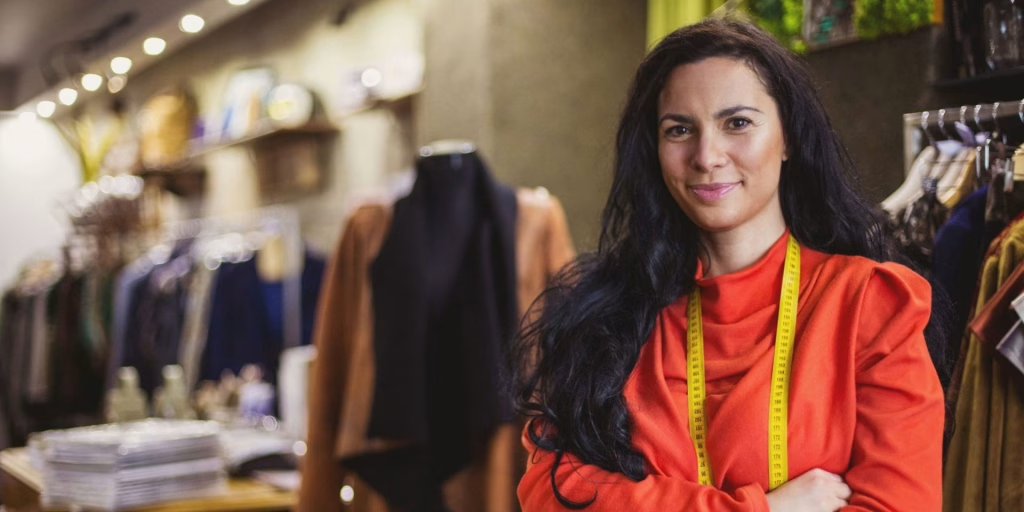
Women on top: How we can empower female entrepreneurs in Eastern Europe, the Caucasus and Central Asia
The tenacity of Eastern Europe, the Caucasus and Central Asia’s female entrepreneurs in the face of many challenges is remarkable. As one business owner puts it, ‘If you send me to space tomorrow, no problem. I can develop a business from there.’
Gender can affect entrepreneurship in several ways. For example, there is a broad idea that women may be less likely than men to start businesses, and when they do, their businesses will be smaller or less profitable.
Indeed, some research has shown that women’s ventures tend to be smaller, service-oriented, and ‘cheaper’ to finance. But the reasons for this may be associated with a variety of factors, including access to capital, education, and both social and cultural norms.
However, it is also important to note that these trends are not universal, that they are changing, and that there are a lot of successful female entrepreneurs.
The importance of diversity
Both visibility and recognition have been increasing over the years, highlighting the importance of diversity and inclusion in societies – not least when it comes to entrepreneurship. This is a consequence of social change and constructive efforts from many actors to create a new environment for women and other social groups.
Overall, the relationship between gender and entrepreneurship is complex and multifaceted, and it is influenced by a range of social, economic, and cultural factors. In the light of this context, Emerging Europe designed a research strategy to understand the motivations, challenges, constraints, and interests of female entrepreneurs in some countries of emerging Europe and Central Asia – Armenia, Azerbaijan, Belarus, Georgia, Kazakhstan, Kyrgyzstan, Moldova, Serbia, Tajikistan, Ukraine, Uzbekistan.
This project was developed in connection with She’s Next Empowered by Visa, a global initiative aimed at advancing women in their efforts to fund, run and grow their businesses, sharing best practices across countries and regions.
The methodology followed a mixed-method approach, collecting both quantitative and qualitative insights. The survey was applied to 2,000 female business owners or self-employed women above 18 years of age.
Almost 80 in-depth interviews (IDI) were carried out with start-up founders, SME owners, large company managers, and business enablers in the eleven participating countries.
When asked about their concerns when it comes to doing business, mentioned the most was fear of business failure (30 per cent), that their financial situation would become worse (27 per cent), neglect of family and/or children (25 per cent), and difficulties balancing work and rest (20 per cent).
One large company manager referred to the necessity to prioritise more after being a mother as individual decisions also impact family dynamics.
“When my son was born there were a lot of opportunities for professional growth [abroad]. (…) However, I felt I was less ready to accept these opportunities when I was raising my son. But that was my personal decision,” she said.
In a different context, an SME owner also drew attention to this: “For someone who wants to grow quickly and become big, [family] can be an obstacle. I have three children, and I have a family, and for me, this is very important. So, I decided to make [the business small] as it is now. And I am very happy with it.”
Other factors, such as the responsibility for the well-being of other people, unpredictability about the future, debt collection, or difficulty in finding suitable workers were also mentioned, but by fewer women – 12 per cent or less.
Starting up
When starting a (new) business, there are several challenges entrepreneurs face to ensure they can rightfully embark on an entrepreneurial venture.
We also asked our respondents about this. The top-three challenges they mentioned were related to high competition (40 per cent), obtaining investments and financing (32 per cent), and unfavourable business conditions such as high taxes and labour costs, for example (31 per cent).
This was confirmed in the in-depth interviews. For example, one start-up founder mentioned that it was unfair to pay the same taxes when starting a business as those that are well established on the market – especially regarding labour taxes.
“It would be great if the government would cut those costs,” she said. “I would feel more comfortable employing more people because now I must think twice before employing someone as it is not only the cost of the salary itself. (…) I would be able to give more money to my employees if I would not spend so much money on taxes.”
Other challenges brought up by more than 10 per cent of the women we surveyed included the search for workers and building teams, finding suppliers of high-quality goods, bureaucracy and the complexity of administration and accounting, expansion of the client base and the search for new markets.








Responses